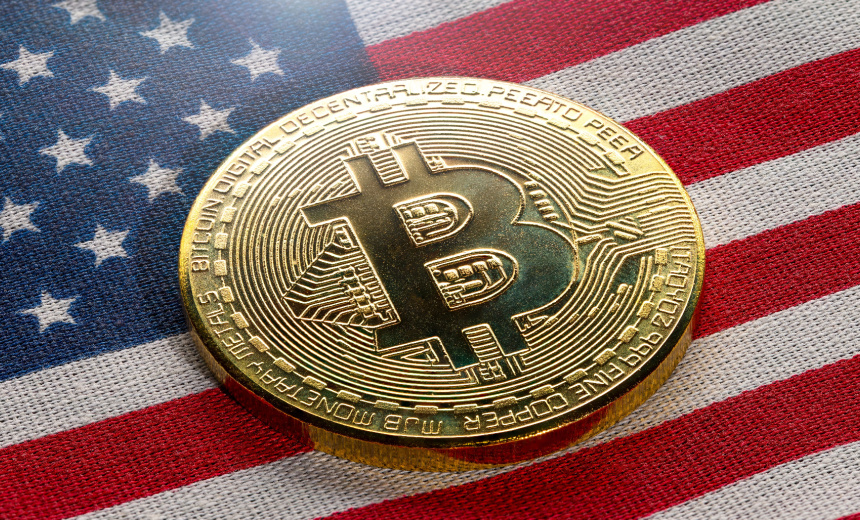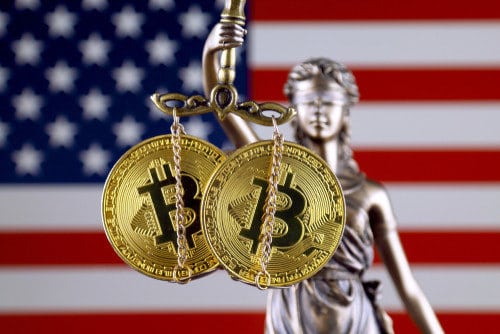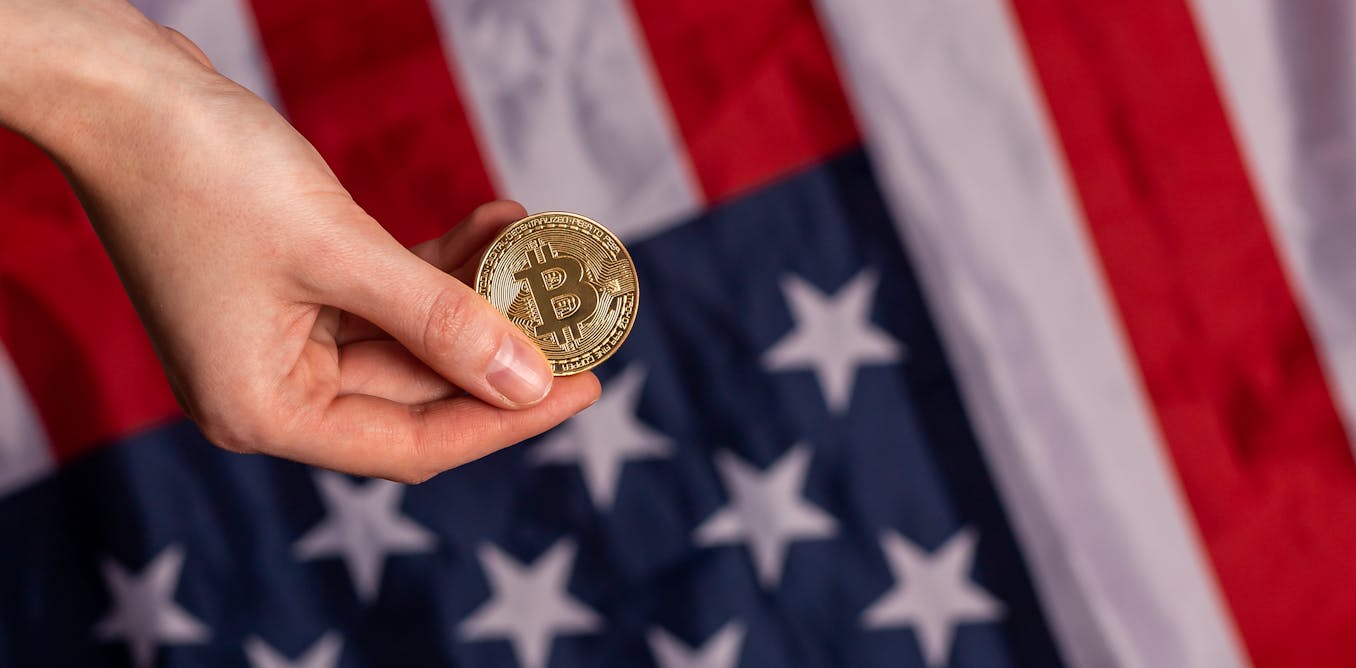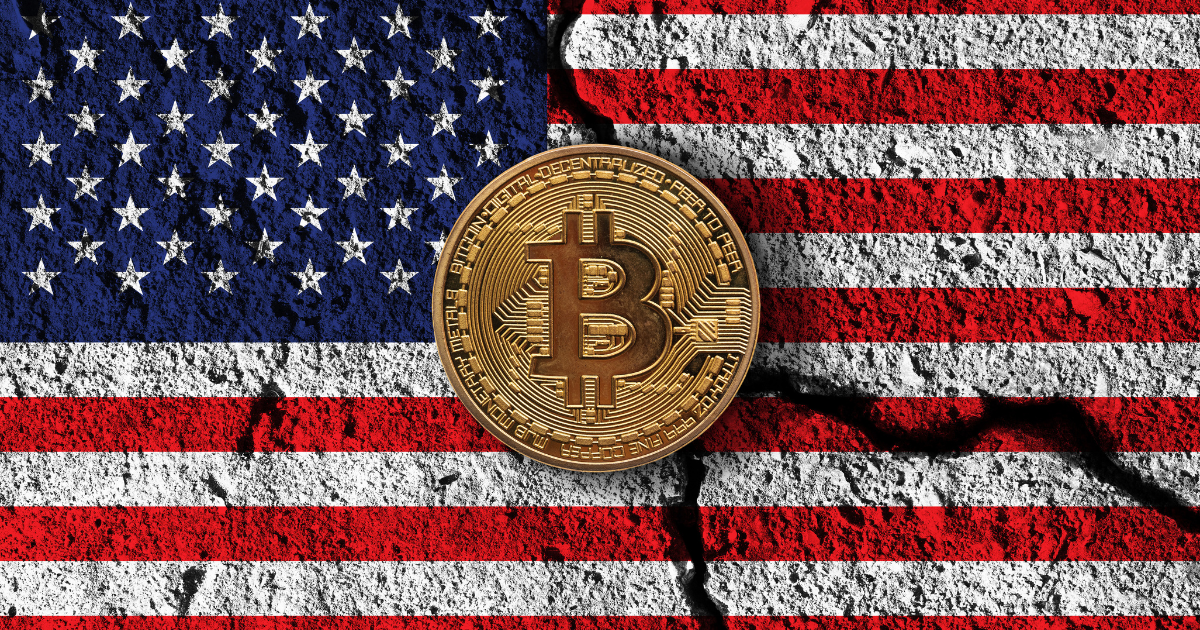
A Future with Bitcoin in USA
The future of Bitcoin in the United States appears increasingly integrated into the financial environment, with government reserves, institutional investment, and state-level initiatives shaping its course. Continued controversy regarding regulation, the environment, and ethics will continue to shape its role in the economy.
By 2025, Bitcoin's presence in the United States is quickly changing, creating a major transition in the country's attitude towards digital currencies. Formerly relegated to the position of an alternate asset held mostly by traders and technophiles, Bitcoin is being increasingly recognized as a strategic part of both public and private financial systems.
A breakthrough came in March 2025, when the U.S. government, under President Donald Trump, announced the creation of a Strategic Bitcoin Reserve. This was a move that placed Bitcoin alongside traditional reserves like gold and foreign currency. The U.S. already possessed an estimated 200,000 BTC, which had been acquired largely through law enforcement seizures. This is a groundbreaking move towards not only viewing Bitcoin as a speculative asset, but as part of the nation's long-term financial planning.
Changing Regulatory Landscape
The private sector, too, is welcoming Bitcoin in new forms. Institutional investors such as state public pension funds in Michigan and Wisconsin have begun investing in Bitcoin exchange-traded funds. Businesses such as MicroStrategy are continuing to take the lead by holding over 423,000 BTC as part of treasury policy. Institutional and state fund action such as this is driving more faith in Bitcoin's potential as a store of value.
Regulation, perennially a troublesome subject, is shifting tone too. The government of today is coming at crypto with a less negative tone, rolling back some of the actions taken in the past. Politically friendly regulators have been installed in key roles within institutions like the Securities and Exchange Commission (SEC) and the Commodity Futures Trading Commission (CFTC). This deregulation has been condemned, however, especially in terms of rumored conflicts of interest regarding private investment by political figures.
While more common in finance, Bitcoin is still riddled with issues. Arguably the most pressing is its environmental toll. Bitcoin mining consumes vast amounts of electricity, which has sparked debate about whether it is sustainable. While Texas and other states are actively soliciting mining operations with cheap energy and tax breaks, others such as New York have imposed restrictions to limit the environmental footprint of mining operations. As pressure increases from environmental activists and legislators, the Bitcoin sector might have to shift towards renewable energy sources in order to remain viable in the long term.
Government Strategy
In March 2025, the U.S. government under President Donald Trump established a Strategic Bitcoin Reserve.
The aim? To position Bitcoin as part of the nation's permanent reserve assets, alongside traditional holdings like gold.
The U.S. government already holds an estimated 200,000 BTC, mostly from seizures and forfeitures.

This marks a huge shift: from cautious regulation to active participation in crypto.
Bitcoin as a National Asset
The value of Bitcoin remains volatile, a condition that still keeps mainstream adoption for everyday transactions at bay. However, its use as an inflation hedge and a decentralized alternative to traditional banking is gaining traction. Technological innovation such as the Lightning Network is already making Bitcoin faster and less expensive to use, something that can potentially make it more useful as a payment method in the future.
Bitcoin in the USA
In the years to come, Bitcoin will become deeply entrenched in the U.S. economy. Whether as a digital gold, a reserve asset, or a future medium of exchange, the trend will be in the upward direction. But it will be based on the regulatory landscape, the technological progress, and how efficiently it can tackle the ethical and environmental concerns.
Institutional adoption of Bitcoin in the USA has also accelerated considerably. Companies such as MicroStrategy have made headlines for acquiring large amounts of Bitcoin as a treasury asset. Public pension funds in Wisconsin and Michigan have also begun investing in Bitcoin ETFs (Exchange-Traded Funds), showing more mainstream acceptance within traditional finance. This institutional demand gives legitimacy and liquidity to the market, which encourages more investors to look at Bitcoin as a legitimate asset class.
Regulation has played a crucial role in Bitcoin development in the US. The government's approach has vacillated from cautious regulation to amiable reform since Bitcoin emerged. Regulation is getting progressively more crypto-friendly today as pro-crypto policies gain momentum. It has not been controversy-free, however. Some believe that deregulation will benefit some private interests, particularly because some politicians are increasingly interested in the crypto space themselves.

Institutional and State Adoption
USA Institutional investors are leaning in hard. Public pension funds in states like Wisconsin and Michigan are now investing in Bitcoin ETFs. USA Companies like MicroStrategy continue to double down on BTC. As of late 2024, they held over 423,000 BTC. States are now choosing sides—some encouraging crypto innovation, others still hesitant due to volatility and regulation uncertainty.
Environmental Concerns
Bitcoin mining’s environmental impact remains a hot topic.
Texas is welcoming mining operations with open arms.
New York, on the other hand, has restricted mining over energy usage and carbon emissions.
There's ongoing pressure for the industry to shift toward cleaner energy sources.
One of the issues with Bitcoin in the United States that continues to be an issue is its environmental impact. Bitcoin mining, which entails computers solving complex mathematical algorithms using enormous computational power, results in the use of enormous amounts of electricity. While Texas has incentives for Bitcoin mining businesses, New York has banned them based on concerns about the environment. While the debate rages on, most in the crypto community are making efforts towards implementing cleaner, energy-efficient alternatives, such as using renewable energy sources.
The volatility of Bitcoin is still a significant hindrance to its mass use by consumers. Though it hit the $100,000 mark in early 2025, due to its tendency to fluctuate in price, it is not as suitable for day-to-day use. Nevertheless, with the advancement of innovation like the Lightning Network that enables cheaper and quicker transactions, Bitcoin could become more convenient in daily use at some point.
In conclusion, Bitcoin is increasingly playing a critical role in the US financial system. From being an experiment in decentralization to a strategic government-held asset, Bitcoin's evolution reflects broader trends in finance, technology, and politics. There are still issues to come, particularly with regulation and sustainability, but there is bright prospect for Bitcoin in the USA based on innovation, institutional investment, and more public participation.
Price and Market Volatility
Bitcoin reached $100,000 in early 2025 before fluctuating.
Volatility continues to be a challenge for mainstream adoption.
Still, the trend is upward, especially with more corporate treasuries and funds getting involved.
Posted on 2025/04/21 10:55 AM
